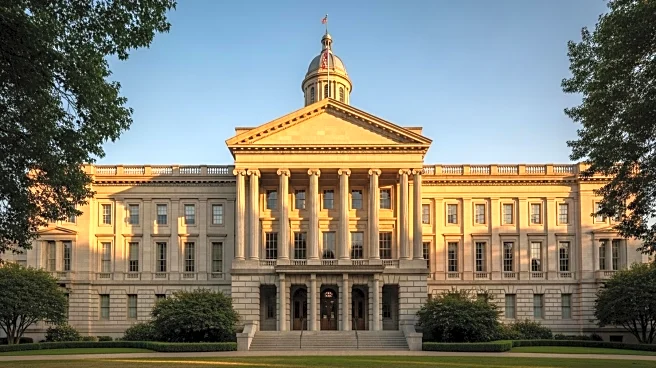What is the story about?
What's Happening?
The Trump administration is urging Congress to pass a four-month stopgap spending bill to prevent a government shutdown. The proposed continuing resolution would extend funding through January 31, 2026, as lawmakers struggle to finalize 12 spending bills for fiscal 2026. House Speaker Mike Johnson emphasized the need for bipartisan cooperation to avoid a shutdown, which he described as dangerous and harmful to Americans. Senate Minority Leader Chuck Schumer called for serious negotiations, warning against unilateral demands from Republicans. The administration's request comes amid concerns over high national debt and recent budgetary rescissions.
Why It's Important?
The potential government shutdown poses significant risks to federal operations and services, affecting millions of Americans. The stopgap bill is crucial to maintaining government functions while Congress works on a comprehensive spending plan. The situation highlights ongoing fiscal challenges and political divisions, with both parties needing to negotiate spending priorities amid economic constraints. The outcome of these negotiations will impact public policy, government efficiency, and economic stability, with broader implications for fiscal governance and political cooperation.
What's Next?
Congress faces a deadline of October 1 to pass either a comprehensive spending plan or the proposed continuing resolution. Failure to do so could result in a government shutdown, disrupting services and operations. Lawmakers will need to engage in negotiations to reconcile differences and agree on budgetary allocations. The administration's rescissions and fiscal policies will likely be central to these discussions, influencing the direction of federal spending and legislative priorities.
















